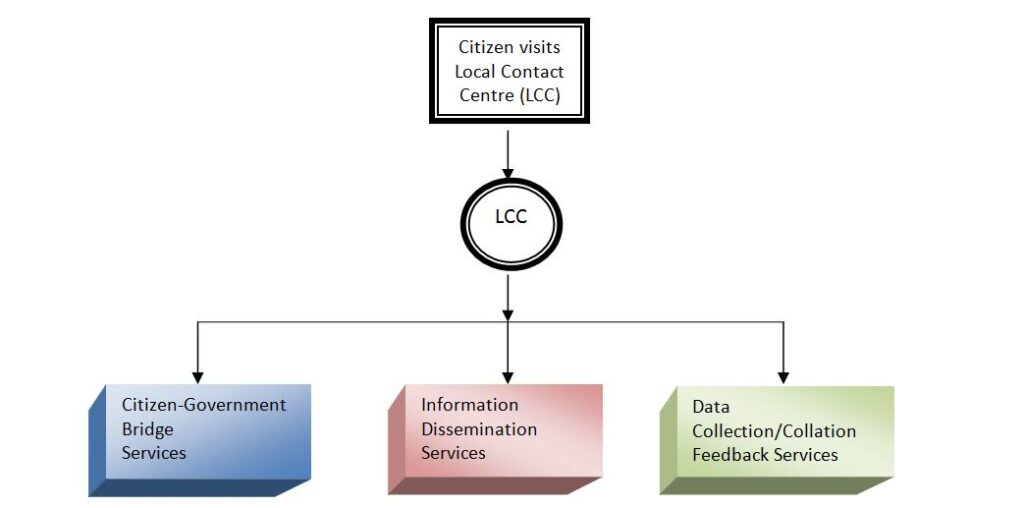GOVERNANCE
This segment addresses the product of Government which is governance. We explore the provision of governance with a view to establishing its nature, ramifications and deployment in relation to and for the benefit of the Citizens.
We also borrow from the knowledge of State functions and Government functions, in order to fully comprehend good governance and establish appropriate expectations of our Government in the interest and sustenance of the State. In our nation today many do not know the full extent of the Service Provision and Service Delivery expected of Government. This has resulted in a very low demand culture amongst the Citizens and the consequent incompetence of successive Governments in the country.
More importantly, whilst observing the outdated means and processes of current governance in Nigeria, we propose and promote a new governance matrix deploying empirical digital platforms for effective and sustainable universal coverage of good governance in Nigeria.
Definitions
Though defined in the Oxford dictionary as; the action or manner of governing a State, organization, etc, governance can also be said to relate to “the processes of interaction and decision-making among the actors involved in a collective problem that lead to the creation, reinforcement, or reproduction of social norms and institutions. Whereas most definitions address the organizational and institutional reference in governance, we shall limit ourselves here to governance by/from Government.
Indeed governance is the administrative function of Government as opposed to the adjudicatory or economic functions. This primarily focuses on the ways and means State resources can be used to adequately articulate and plan services for the Citizen (Service Provision), and the best ways and means to deploy those services for the benefit of the Citizen (Service Delivery), i.e. the process of decision-making and the process by which decisions are implemented.
Elements of Governance.
For over two decades efforts have been made by the research and international development community to assess and measure the quality of governance of countries all around the world. One of these efforts to create an internationally comparable measure of governance and an example of an external assessment is the Worldwide Governance Indicators project, developed by members of the World Bank and the World Bank Institute. The project reports aggregate and individual indicators for more than 200 countries for six dimensions of governance:
a) voice and accountability, b) political stability and lack of violence, c) government effectiveness, d) regulatory quality, e) rule of law, f)control of corruption.

The Mo Ibrahim Foundation defines governance as the provision of the political, social and economic goods that a citizen has the right to expect from his or her State, and that a State has the responsibility to deliver to its citizens.The Ibrahim Index of African Governance (IIAG) assesses progress under four main conceptual categories:
- Safety& Rule of Law
- Participation & Human Rights
- Sustainable Economic Opportunity
- Human Development
However, a more expansive list of attributes have come to define good governance and include;
Good governance is participatory
Anyone affected by or interested in a decision should have the opportunity to participate in the process for making that decision. This can happen in several ways – citizens may be provided with information, asked for their opinion, given the opportunity to make recommendations or, in some cases, be part of the actual decision-making process. Good governance requires that civil society has the opportunity to participate during the formulation of development strategies and that directly affected communities and groups should be able to participate in the design and implementation of programmes and projects. Even where projects have a secondary impact on particular localities or population groups, there should be a consultation process that takes their views into account. This aspect of governance is an essential element in securing commitment and support for projects and enhancing the quality of their implementation.
Good governance is accountable
Accountability is a fundamental requirement of good governance. Government has an obligation to report, explain and be answerable for the consequences of decisions it has made on behalf of the people it represents. At the macro level this includes financial accountability, in terms of an effective, transparent and publicly accountable system for expenditure control and cash management, and an external audit system. It encompasses sound fiscal choices, made in a transparent manner, that give priority to productive social programmes – such as basic health services and primary education vital to improving the living standards of the poor and promoting economic development – over non-productive expenditures, such as military spending. At the micro level it requires that managers of implementing and parastatal agencies be accountable for operational efficiency. Auditing systems should meet international standards and be open to public scrutiny.
Good governance is transparent
People should be able to follow and understand the decision-making process. This means that they will be able to clearly see how and why a decision was made – what information, advice and consultation council considered, and which legislative requirements (when relevant) were followed. Private-sector investment decisions depend on public knowledge of the government’s policies and confidence in its intentions, as well as in the information provided by the government on economic and market conditions. Transparency of decision-making, particularly in budget, regulatory and procurement processes, is also critical to the effectiveness of resource use and the reduction of corruption and waste.
Good governance follows the rule of law
This means that decisions are consistent with relevant legislation or common law and are within the powers of the government. A fair, predictable and stable legal framework is essential so that businesses and individuals may assess economic opportunities and act on them without fear of arbitrary interference or expropriation. This requires that the rules be known in advance, that they be actually in force and applied consistently and fairly, that conflicts be resolvable by an independent judicial system, and that procedures for amending and repealing the rules exist and are publicly known.
Good governance is responsive
Government should always try to serve the needs of the entire people while balancing competing interests in a timely, appropriate and responsive manner.
Good governance is equitable and inclusive
A community’s wellbeing results from all of its members feeling their interests have been considered in the decision-making process. This means that all groups, particularly the most vulnerable, should have opportunities to participate in the process.
Good governance is effective and efficient
Government should implement decisions and follow processes that make the best use of the available people, resources and time to ensure the best possible results for their Citizens.
From the above, a clearer understanding can be discerned of governance and based on same we can note the difference in our governance and the nature of same in Nigeria. Good governance not only supports social development, but also promotes economic development and sustainability, not to mention political stability.

Governance, Service Delivery, Service Provision
As earlier mentioned, governance encompasses both Service Provision and Service Delivery from Government to the Citizen(s). This traverses the full spectrum of the functions of State/Government earlier enumerated, and for this purpose Governments have evolved “Departments” to better cater for citizens based on the various items, areas, sectors and issues or envisaged societal challenges, including;
- Department of Agriculture, Food and the Marine
- Department of Arts, Regional, Rural
- Department of Children and Youth Affairs, Sports and Recreation.
- Department of Family and Community Affairs
- Department of Communication,
- Department of Environment, Sanitation
- Department of Defence
- Department of Education and Skills
- Department of Finance
- Department of Foreign Affairs and Trade
- Department of Health
- Department of Jobs, Labour, Employment
- Department of Justice and Equality
- Department of Public Expenditure and Reform
- Department of Social Protection
- Department of Regional, Rural and Community
- Department of Transport,
- Department of Enterprise and Innovation
- Department of Electricity, Fuels, Energy
- Department of Housing, Planning
- Department of Data and Statistics
- Department of Science, Technology
Service Provision relates to the adequate harnessing of the resources of the State, for the benefit of the Citizen. Service Delivery, on the other hand, relates to the effective and all inclusive deployment of the resources of the State to provide for and benefit the Citizen at his/her point of need, wherever he/she may be, through amenities, services and opportunities..
Governance models enable governments, organizations and institutions to achieve any desired, and or potentially mission-critical, objective. This includes the framework, policy, systems and processes to be adopted in achieving the objective, and enhance functionality and effectiveness. Through these models, government policies and programmes are deployed universally within the territory of the State. The entire complex of these models is thus referred to as the governance/government matrix.
A New Governance Matrix
In colonial Africa, various forms and methodologies were deployed to effect governance. The objective was not necessarily the wellbeing of the natives, but rather peaceable existence to facilitate the extraction of resources back to the homelands of the colonisers. In this regard, the British deemed it necessary to educate and sustain the natives such that they could be used in the extraction and governance processes, thereby reducing the cost implications for the British government. the French on the other hand adopted “assimilation” making the colonies part of France in order to directly own the resources and economies of the colonies.
What we have come to remember as the “good old days” stem from the effective operation of the British colonial government based on the understanding by the system operators that each and every office, desk, staff, process, check, and schedule is as important as the next. And that every officer must do their job diligently if the entire system is to function properly and achieve its objectives effectively. Thus there is also a prerequisite thinking that drives successful governance. Perhaps this introduces the dual topics of State Philosophy and State Agenda.
However, post colonial rule, whilst the objectives changed from extraction ofshore to utilisation onshore for development, these systems and processes were not adequately adapted to reflect the new objectives. Systemic segregation, oppression and suppression were not replaced with systemic justice, equality, inclusiveness, universal participation, equity, productivity and progress in tandem with the aspirations of the newly liberated Citizens. In many respects, the persons changed but the oppression increased.
Further to this, we have had our fair share of strife and conflict in quite a short history, covering most areas of the country at one time or the other. And on most occasions, the governance gaps created by these situations have remained unattended and blocked. This has made it continually difficult to achieve good governance and translate service provision into service delivery, ultimately resulting in service diversion. Thus over decades the departments of State and governance matrix have been fashioned to cater for those in control, amplifying the worse fears reasoned by Karl Marx, i.e. that the ruling classes will use the instruments of State to oppress the people.
And thus, not only have we the Nigerians remained underserved by our successive governments, we have also forgotten what it is that governments and governance stand for. We have equally lost track of the checks and balances that facilitate good governance and ensure compliance by the system operators for effective deployment of service delivery to the people. Our governance model and consequent matrix, i.e. our system, has failed.
but though we are experiencing acute System Failure, we are not a failed State. The State of Nigeria still stands, but for how long? It is our systems and processes that have failed us due to the trauma of decades, bad leadership and, more so, the bad, corrupt and unchecked intentions of the system operators.
GATE 774 stands for a revival and clear shift from this position. We promote the refocusing of our matrix unto the Citizen. We promote the re-ordering of government and governance for the benefit of the Citizen and not the system operator as has been the case since independence. We promote an inclusive governance that guarantees universal participation and ensures universal presence of Government for universal access by all Citizens.
In this regard we have designed a governance matrix that will ensure adequate service provision and delivery to the people of Nigeria through the localised digital co-hosting of the departments of the State in every Local Government as panacea against the adverse effects of the failed third tier of government. It is our vision that the full bouquet of Government services shall be availed every citizen in his locality. It is also our vision that all data and statistics shall be actual, and generated within each and every locality through localised universal presence.
For this purpose Local Contact Centres have been integrated, not only to enable the necessary gathering of information (data and statistics) that we have lacked for decades, but to also enable access to Government services to all Citizens in their localities: points of need.

The promoted system adopts a three pronged approach, i.e.;

Bridge Services render a bridge between the Government and the Citizen thereby creating harmony within the State of Nigeria through a single transaction platform for government-citizen transactions.
Dissemination Services renders the prerequisite levels of information necessary within any progressive nation, enabling both Citizen knowledge and participatory capacities.
Collection/Collation Services drives the imperative of data and statistics essential for operations and service provision and delivery.
Together, these three elements form the tripod upon which the model stands, i.e. the possibility of reducing/eliminating the current huge gap between the governing, government and the governed. Informing the governed such that they can be both productive, informed and participatory in the affairs of State as well as being functional productive members of the community. Thirdly, the role of data and/or statistics is irreplaceable in any planning process, especially that involving large numbers of different elements and differing components.
The characteristics of these distinct and distinguishable elements are further enhanced when integrated into the Operating Platform (OP) adopted, called THE GATE®, which provides the processes, operational framework and engine that drives both the model and matrix.
THE GATE ®
THE GATE is a Common Operating Platform for MDA administration and policy implementation through one-stop-shops, i.e. Local Contact Centres (LCC) in every Local Government, designed as a service delivery mechanism for social and economic application and benefits, necessarily through hardcopy (paper) forms and formats as opposed to the current spate of E (internet based) solutions in the country. Bearing in mind our current literacy levels and E-penetration levels, our current E models, without, corresponding hardcopy platforms, not only serves to deepen the divide between government and the citizenry, but also between government service provision and service delivery to the masses.
THE GATE® serves three immediate functions which compliment the above elements, i.e.
- 1. A hard copy gateway (necessarily preceding e-solution penetration) and citizen access to Government domestic transactions and services.
- 2. A coordinative vehicle for service delivery, information dissemination, social infrastructure and social engineering mechanisms for national development strategies.
- 3. A local level research engine for data and statistics, feedback mechanisms and citizen capture.
- (Note: this is not seen show unless you click on the blue words i.e. where it says THE GATE® above)
The need for a new “system” is predicated on glaring realities, i.e.;
- 1. The absence of Constituted Authority nationwide, stemming from years of trauma through both conflict and strife.
- 2. Lack and inactivity of existing interactive portals and communication structures for conduct of general official transactions including registrations, enquiries and information dissemination at all levels.
- 3. Low citizen participation, failure of participatory democracy and political rascality at local levels.
- 4. Lack of adequate accurate statistics and data, low performance or non existence of collation, monitoring, regulatory, sanction and feedback mechanisms for effective and efficient planning and resource management.
- 5. Poor performance of the Local Government structure, “Excessive politicking had made even modest progress impossible. Consequently, there has been a divorce between the people and government institutions at their most basic levels” (Brigadier Shehu Musa Yar’Adua, Preface to the 1975 Local Government Reform Guidelines)
- 6. Degeneration of structures and institutions for service delivery and policy implementation. Thus decline in service delivery, social engineering mechanisms, local pairing structures and social safety nets, leading to youth restiveness, crime and insecurity